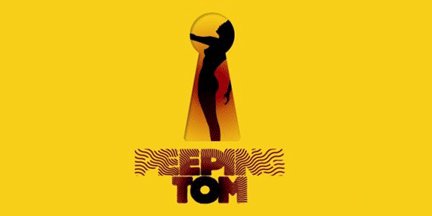
“Mojo”
from the album Peeping Tom
2006
iTunes
Download an MP3 of “Mojo” from Ipecac Recordings
[right-click/save-as]
Mike Patton’s “pop” project Peeping Tom kept fans waiting for a really, really long time. Consequently, the four years between its inception around 2002 and fruition in 2006 were a gestation period for urban-legend speculation about the record’s sound to flood the public consciousness. Was he really working with Norah Jones? What did he mean by “pop record”? Given the thrashing, acidic nature of Patton’s other projects like Mr. Bungle, Faith No More, and Tomahawk, nobody expected this album to be Mike Patton Sings Boyz II Men, and most fans figured the notoriously enigmatic musician was just messing around.
Peeping Tom makes a good case for itself as a pop/rock record or even as an alternative hip-hop record, but honestly, the most telling way to describe the album is as a Mike Patton record. As usual, the esoteric songster has used a new project as the means to create an entirely fresh and distinct rock style. The hip-hop presence on the disc is obvious, but Patton has assimilated it into his project so nimbly that the music isn’t easily classifiable as hip-hop, rock, or pop. For instance, on “Mojo,“ the album’s first single, gangsta-style squealing synths and reverb bass push ahead while Patton embraces a slicker and smoother incarnation of his Faith No More-era voice, slinking through the song with his trademark blend of clean vibrato, nasal tension, and belting clarity. This is not any kind of rap-rock that’s been heard before and bears no likeness to Limp Bizkit, Kid Rock, or even Faith No More.
This track also serves as a good example of the self-deprecation that pervades the project. When Patton sings “Roll it up and smoke it again/ Bottoms up and drink it again/ Fix it up and shoot it again/ I can’t believe I did it again,” he is keenly aware of the way the way it sounds for such an avant-garde songwriter as himself to recite perfect rock & roll clichés. His lyrics mock the self-important coolness of the music industry and self-parody his own place in it. The last line of the chorus is a particularly smart addition, painting on still another layer of sarcasm in how it parallels Britney Spears’ “Oops…I Did It Again” — which he quotes directly at the very end of the track.
Patton is self-aware: the Britney shout-out shows that he knows this is the closest he’s been to writing anything near radio material in 15 years. Simply put, the man understands irony: he knows exactly what he’s doing in convincing waify songbird Norah Jones to sing “The truth kinda hurts, don’t it motherfucker?” on “Sucker,” and he knows just how faux-clever it comes off when he sings “I know that assholes grow on trees/ But I’m here to trim the leaves” on “Don’t Even Trip.”
Of course, all this smirking could be interpreted as Patton thinking he’s better than everybody else, but it could just as easily be an acknowledgement that the prestige he’s garnered in the rock world for being so experimental and arty is really no more meaningful than the vanilla-flavored teen pop stardom thought to be his antithesis. This very debate has kept fans and critics talking for years, and whether you think Patton is a narcissist or a walking slice of humble pie, it adds a satisfying dimension to what is his most accessible record since Mr. Bungle’s 1999 album, California. That album, like this one, still sounds a little like psychotic carnival music, but that’s why listeners love him.



this is where there are different news about this album: http://lavamus.com/Album/2442366/Mike_Patton/A_Perfect_Place__Ost_/mp3/